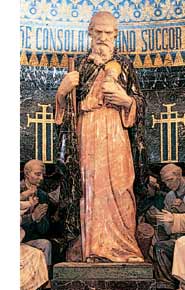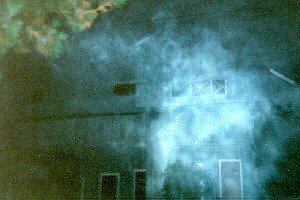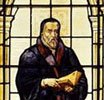The Feast of All Saints
Ephrem Syrus (d. 373) mentions a Feast dedicated the saints in his writings. St. Chrysostom of Constantinople (d. 407) was the first Christian we know of to assign the Feast to a particular day: the first Sunday after Pentecost. The Feast did not become established in the Western Church, however, until the Roman bishop Boniface IV consecrated the Pantheon at Rome to Christian usage as a church on May 13, 609 or 610. The Feast was observed annually on this date until the time of Bishop of Rome, Gregory III (d. 741) when its observance was shifted to Nov. 1, since on this date Gregory dedicated a chapel in the Basilica of St. Peter to "All the Saints." It was Gregory IV (d. 844), who in 835 ordered the Feast of All Saints to be universally observed on Nov. 1.3
As mentioned above, All Saints Day is celebrated by Roman Catholics, the Orthodox, Anglicans, and Lutherans However, because of their differing understandings of the identity and function of the saints, what these churches do on the Feast of All Saints differs widely. For Roman Catholics, the Orthodox, and to some extent, Anglicans, All Saints is a day to remember, thank God for, but also to venerate and pray to the saints in heaven for various helps. For Lutherans the day is observed by remembering and thanking God for all saints, both dead and living. It is a day to glorify Jesus Christ, who by his holy life and death has made the saints holy through Baptism and faith.







